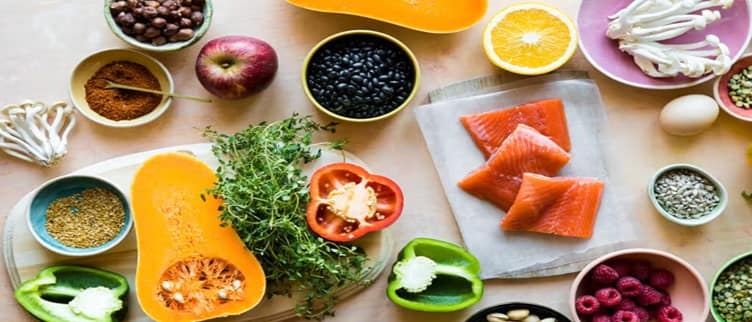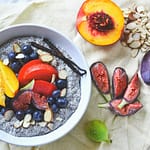B-Vitamin Foods that Aid in Alleviating Depression Symptoms

Overview of The Link Between B-Vitamins and Depression
Depression, often described as a dark cloud overshadowing one’s life, is a complex condition affecting mood and overall well-being. Emerging studies suggest a compelling link between B-vitamins and mental health. These essential nutrients act as catalysts in various physiological processes that influence our emotional state. By understanding this connection, let’s delve into how these nutritional strategies for depression management can alleviate symptoms and improve mood.
Essential B-Vitamins for Mental Well-being
B-vitamins are a group of essential nutrients that play a critical role in maintaining mental well-being. They support the production of neurotransmitters, which are chemicals in the brain that regulate mood, memory, and other cognitive functions.
B1 (Thiamine): The Nervous System Nutrient
B vitamin serves as a powerhouse for the nervous system. This essential vitamin supports nerve function, playing a crucial role in transmitting signals within the brain and throughout the body. Imagine it as the conductor of a symphony, ensuring that the communication network within your body operates harmoniously.
B2 (Riboflavin): Energy Production for Mood Stability
Riboflavin, also known as B2, functions as a key player in energy production. By actively participating in the conversion of food into energy, riboflavin contributes to maintaining stable moods. Think of it as the fuel that powers your body and mind, helping you stay energized and emotionally balanced.
B3 (Niacin): Stress Reduction and Cognitive Health
Niacin, or B3, is like a soothing balm for stress. It aids in stress reduction and promotes cognitive health. By supporting the nervous system, niacin contributes to mental clarity and resilience in the face of life’s challenges. Consider it your calm companion in the journey to better mental well-being.
B6 (Pyridoxine): Serotonin Production and Regulation
Pyridoxine, or B6, takes center stage in the production and regulation of serotonin. Serotonin, often referred to as the “feel-good” neurotransmitter, plays a pivotal role in mood regulation. B6 ensures that your brain produces and maintains an adequate supply of serotonin, contributing to a positive and uplifted mood.
B9 (Folate): Homocysteine Regulation for Mood Balance
Folate, also known as B9, acts as a regulator, specifically in managing homocysteine levels. Elevated homocysteine has been associated with mood disturbances, and folate steps in to maintain balance. It’s akin to a skillful tightrope walker, ensuring that your mood remains steady and balanced.
B12 (Cobalamin): Neurological Function and Depression
Cobalamin, playing a vital role in depression relief through B-vitamin-rich foods, is crucial for neurological function and may help manage depression. It’s the brain’s best buddy. This essential vitamin supports the health of nerve cells and contributes to overall neurological well-being. Think of it as a guardian for your brain, fostering a healthy environment that may positively impact your mood.
B-Vitamin-Rich Foods for Depression Relief
When it comes to battling the blues, your kitchen can be your ally. Let’s explore specific foods that are not just tasty but are also rich in B-vitamins, known for their potential to alleviate symptoms of depression.
Leafy Greens: Folate Powerhouses
Spinach, kale, and other leafy greens are B-vitamin-rich foods for depression relief, packed with folate and B-vitamin that plays a crucial role in mood regulation. Folate helps in the synthesis of neurotransmitters like serotonin, which contribute to feelings of happiness and well-being. Including these vibrant greens in your diet provides a natural and delicious way to boost your folate intake and, consequently, support your mental health.
Fortified Foods: B12 for Vegans and Vegetarians
For those following a vegetarian or vegan lifestyle, getting enough B12 can be a challenge since it is primarily found in animal products. However, there are fortified foods specifically designed to bridge this gap. Look for fortified cereals, plant-based milk, and nutritional yeast. These foods are enriched with B12, ensuring that individuals adhering to plant-based diets can still meet their B12 requirements. Incorporating these fortified options into your meals can contribute to maintaining optimal B12 levels and supporting overall mental well-being.
Lean Proteins: B6 and B12 Sources
Lean proteins, including chicken, turkey, and fish, offer a double benefit by providing both B6 and B12. These two B-vitamins play essential roles in neurotransmitter function and mood regulation. B6, for instance, is involved in the production of serotonin and other neurotransmitters, while B12 supports neurological function. Including lean proteins in your diet not only ensures a tasty and satisfying meal but also contributes to the arsenal of nutrients that can positively impact your mental health.
Whole Grains: B Vitamins for Sustained Energy
Whole grains, such as brown rice, quinoa, and oats, are not just excellent sources of complex carbohydrates; they are also rich in various B-vitamins. B-vitamins help convert the food you eat into energy, promoting sustained energy levels throughout the day. This sustained energy can contribute to mood stability, preventing the energy crashes that often accompany refined carbohydrates. Including a variety of whole grains in your diet provides a wholesome approach to obtaining essential B-vitamins and supporting your overall mental well-being.
Legumes and Nuts: B1 and B6 Support
Legumes, including beans and lentils, as well as nuts, are nutritional powerhouses that offer support for B1 and B6 and they offers a solid support for your nervous system and nutritional strategies for depression management. Thiamine (B1) is crucial for nerve function, supporting a healthy nervous system. Meanwhile, pyridoxine (B6) is involved in neurotransmitter production, influencing mood and emotions. Incorporating legumes and nuts into your diet adds a delightful crunch while providing a significant dose of these essential B-vitamins, contributing to the overall health of your nervous system and emotional well-being.
Dairy and Eggs: Riboflavin and B12 Boost
Dairy products and eggs are excellent sources of riboflavin and B12, enhancing your overall mood stability with foods rich in B-vitamins for depression relief. Riboflavin plays a role in energy production and helps maintain healthy skin and eyes. Additionally, B12 is crucial for neurological function and may have a positive impact on mood regulation. Including dairy products and eggs in your diet ensures a flavorful and versatile source of these B-vitamins. Whether you enjoy yogurt with berries or incorporate eggs into your morning routine, these foods provide a tasty way to enhance your nutrient intake and support your mental health.
Crafting a B-Vitamin-Enhanced Diet Plan
Crafting a diet plan that focuses on B-vitamin enhancement doesn’t have to be complicated. It’s about making mindful choices and Incorporating B-vitamins into the diet for mood improvement. Let’s break it down step by step.
Planning Balanced B-Vitamin Meals
When planning your meals, aim for a colorful and diverse plate. Mix and match foods from different groups to ensure a well-rounded intake of B-vitamins, forming part of your nutritional strategies for depression management. Each food group brings its own set of B-vitamins to the table, ensuring you get a well-rounded dose of these mood-boosting nutrients.
For breakfast, consider a bowl of fortified cereal with berries and a glass of milk or a plant-based alternative. Lunch can be a hearty salad with leafy greens, nuts, and grilled chicken or chickpeas. For dinner, opt for whole grains like quinoa or brown rice paired with a variety of colorful vegetables and a protein source like fish or tofu.
Combining Foods for Optimal Nutrient Absorption
Did you know that some vitamins work better together? To enhance the absorption of B-vitamins, consider combining certain foods. For example, pairing vitamin C-rich fruits with iron-rich foods can boost iron absorption. Similarly, combining vitamin B6-rich foods with foods containing magnesium can enhance the effectiveness of both nutrients.
Incorporate citrus fruits into your meals or snacks, as they not only provide vitamin C but also add a refreshing flavor. Additionally, nuts and seeds are excellent sources of magnesium, making them great companions to B6-rich foods like chicken or bananas.
Considerations for Individuals with Dietary Restrictions
If you have dietary restrictions, there are still plenty of options available. Consult with a nutritionist to tailor a plan that suits your needs, incorporating B-vitamins into the diet for mood improvement. For those following a vegetarian or vegan diet, focus on fortified plant-based alternatives like soy milk and cereals. Incorporate a variety of legumes, nuts, and seeds to cover B-vitamins that are commonly found in animal products.
Individuals with gluten sensitivity can opt for gluten-free whole grains like quinoa, rice, and oats. For those with lactose intolerance, explore lactose-free or plant-based alternatives for your dairy needs.
Remember, consulting with a nutritionist or healthcare professional as we – the best depression clinic in Mumbai, RNR Medicine Department at Jaslok Hospital, can provide personalized guidance based on your specific dietary requirements.
Embracing a B-vitamin-enhanced diet can be a simple yet powerful step towards improving your mental well-being. By including a variety of nutrient-rich foods in your meals, you not only support your body’s overall health but also provide the essential building blocks for a positive mood.
Start small, experiment with different recipes, and find a balance that works for you. Whether you’re enjoying a colorful salad, sipping on a vitamin-packed smoothie, or savoring a balanced dinner, every nutritious choice contributes to a happier, healthier you. So, let’s raise a toast to the goodness of B-vitamins and the joy they can bring to our lives!





